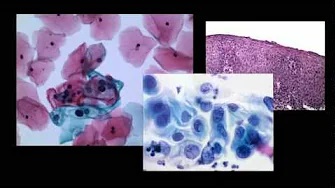Document Type
Article
Publication Date
10-1-2020
Abstract
Late relapse [>3 years from complete remission (CR)] in acute lymphoblastic leukaemia (ALL), is unusual. Data from the MRC UKALLXII/ECOG E2993 trial are presented to evaluate the incidence and characteristics of late relapse in adult ALL. Of 1,909 patients, 1,752 (92%) achieved CR and among these 757 (43·2%) relapsed; 691 (91·3%) within three years and 66 (8·7%) beyond. Among these 66 patients, median time to relapse was 47 (37-144) months. Relapse beyond three years occurred in 3·8% of all who achieved CR. The cumulative risk of relapse was 40%, 43% and 45% at three, five and ten years respectively. Out of the 1 752 patients who achieved CR, 11·7% underwent autologous and 40·6% allogeneic transplant, while in CR1. Of the autologous patients, 43·2% relapsed early and 3·4% relapsed late. However, among the allogeneic patients, 13·2% relapsed early and only 1·3% late. The five-year overall survival from relapse was 5·8% and 20% in the early and late relapse patients respectively. In conclusion, late relapse in adults with ALL is not uncommon, and is associated with better outcome after relapse compared to early relapse.
Recommended Citation
Ganzel C, Wang XV, Rowe JM, Richards SM, Buck G, Marks DI, Litzow MR, Paietta EM, Foroni L, Luger SM, Willman CL, Mullighan CG, Roberts KG, Wiernik PH, Douer D, Lazarus HM, Tallman MS, Goldstone AH. At three years, patients with acute lymphoblastic leukaemia are still at risk for relapse. Results of the international MRC UKALLXII/ECOG E2993 trial. Br J Haematol. 2020 Oct;191(1):37-43. doi: 10.1111/bjh.16616. Epub 2020 Mar 27. PMID: 32220069; PMCID: PMC7687130.

